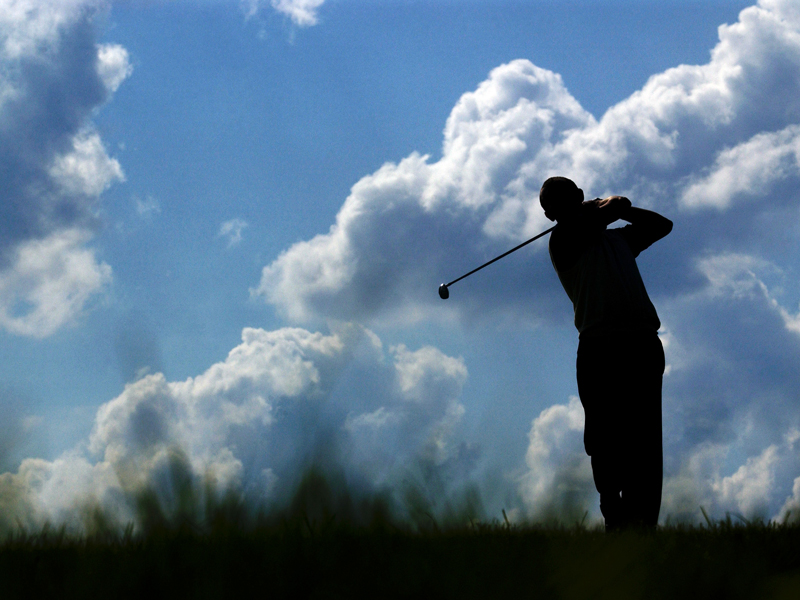Should general play be allowed from the medal tees?
Should the "back pegs" always be available, or should they be reserved for competitions only?


Should the "back pegs" always be available, or should they be reserved for competitions only?
An issue often debated by golf club committees across the UK and Ireland is whether general play should be allowed from the medal tees. The question being: would allowing everyday use of the back pegs increase our club’s offering to visitors and members, or is it likely to damage a unique feature of the course and detract from its significance?
So what are the key arguments for allowing general play from the medals?
When a visiting golfer pays a green fee at a club, they have a level of expectation. They will, of course, hope to experience the course in decent condition. They will also be looking for a good test, representative of their ability. By giving options in terms of the tees, this latter expectation will be realised by the maximum number of players.
Low handicap golfers appreciate the chance to play from the medal tees to see how challenging a layout can be. They may not choose to take the option, but to have the chance gives added value. If a visitor has paid the full green fee they might reasonably expect to play the full course.
In challenging times, golf clubs must be very aware of customer expectations and should seek to match these in all feasible ways. Every visitor is a potential marketing tool. If they enjoy a day’s golf, they’re likely to report back to friends and colleagues or to post about their good experience on social networking websites. No club wants a visitor going away with a complaint about an aspect of their day.
If a group of mixed ability is deciding between two similar venues for an event and they learn that one will allow play from the back pegs but the other wont, it could decide which club receives the business.
Subscribe to the Golf Monthly newsletter to stay up to date with all the latest tour news, equipment news, reviews, head-to-heads and buyer’s guides from our team of experienced experts.
Members too are increasingly aware of what they get in return for their annual sub. For many, allowing general play from the medal tees might be another tick in the box when it comes to selecting a club for membership.
It should be pointed out that, even if a club permits general play from the medal tees, most golfers will continue to go from the yellows (or boxes.) The average handicap of male golfers in the UK remains around 15, and most of those who play the game do so for fun. For the majority it’s not fun if it’s too difficult, so they’ll opt to play the course in its easier guise.
This is evidenced by modern, resort-style, courses where four or five teeing options are available. It’s incredibly rare to see players choosing the back, or even second to back tees. In the main they will play from the equivalent of “the boxes.”
At courses with multiple teeing grounds there’s generally a recommendation on which set to use, based on handicap. Clubs with just box and medal tees could do the same: A recommendation that the medal tees should be only for golfers below a certain handicap. Yes, there would be the occasional hero playing off 28 who fancied his chances, but the majority would take the recommendation on board.
Through the summer months, the yellow tees at clubs can take a pummeling. Towards the end of the season, visiting golfers (and members) will be asked to play from tee boxes sadly lacking in grass and strewn with divots.
Meanwhile, some 15-50 yards behind are pristine teeing grounds that have seen barely any play over the previous months. Wouldn’t it make sense to spread the traffic? If a small percentage of players chose to hit from the back pegs it would give a partial rest to the tired boxes.
There are forceful arguments for permitting general play from the back tees, but there’s also a convincing case for not allowing it.
One of the most compelling reasons to prevent general use of the medals is slow play. This is, possibly, the most significant problem in golf today and anything that exacerbates the issue is surely unwelcome.
At many clubs, the back tees bring an increased number of hazards and obstacles into the equation. There may be long carries to the fairway, or areas of rough designed to catch errant shots during competition. Allowing general play from these tees will result in more looking for balls, more provisionals being played and, therefore, more time to get round.
In addition, the extra length of the course will inevitably mean the average golfer takes more shots. So, more pre-shot routines and even more waiting.
Generally, if a club allows all-comers the chance to play off the backs, only those capable will do so. But, if just one group of novices punch above their weight, play from the medals and take five hours to get round, then the course is backed up for the rest of the day.
The golfing purist may argue that a layout should be played at its most challenging. But, tell that golfing purist they'll have to spend an extra hour on the course in order to do it and their view might change.
The medal tees are reserved for competitions and, other than Open events, this means they are reserved for the members. So the chance to play off the back pegs is a perk of membership. In the monthly medal or the club knockout, the members play from these relatively unspoilt teeing grounds and appreciate the privilege. At a time when clubs are struggling to recruit and retain members, taking away a benefit of membership could be considered imprudent. If members suddenly find their medal tees are being churned up because of general play, they will most likely be disgruntled.
Then there are the open tournaments – a chance for a club to show off the course. If the medal tees have been used in general play, they’re not going to look so good for a club’s flagship event. After hosting 150 golfers from the surrounding area and further afield, the last thing a club needs is for them to go home saying, “you should have seen the state of the tees at…”
Some golfers will enter open competitions as they see it as their only chance to play a course they enjoy from the medal tees. The prestige of the event could suffer if play from the back pegs is permitted at any time.
Whether general play from the medal tees is allowed or not, there will always be those in opposition. If permitted, long-standing members will complain of deteriorating medal tees and slow play. If prohibited, visitors and members who don’t play in competitions will complain of being short-changed.
Each club must weigh up the pros and cons, with a profile of their members and visitors in mind. If a club has a thriving, competitive membership, with numerous tournaments and Open events through the year, the bulk of the membership probably won’t want general play from the medals. If a club has fewer members playing competitions, or is looking to increase visitor income, then allowing play from the back pegs would probably be savvy.
The GM View...
Case by case
Each club has to make a decision on the usage of the medal tees based on their objectives as well as the requirement of the membership. If looking to attract new members and visiting parties, then offering general play from the medal tees could enhance the product. On the other hand, a competitive membership might baulk at one of their unique benefits being removed if the back tees were opened to all-comers. In order to make a choice either way, a club should conduct a comprehensive profiling of, and consultation with, members and visitors.
All about value
Golfers paying a hefty green fee or substantial annual sub are looking to obtain value for money. Visitors, in particular, may feel hard done by if they’re not allowed to play a course at its full length. Members too may feel disgruntled by this if they don’t play in competitions.
However, members may also feel they are not getting value for money if their medal tees are worn because general play has been allowed. Again, it all depends on the profile of golfers playing the course through the year.
There are options
For visitors, clubs could think about charging a supplementary green fee to play from the back tees. This might make those who aren’t quite good enough to manage the extra challenge think twice. Also, a hard line could be taken on handicap. Those visitors or members with a handicap below a certain level could be allowed to play from the backs. Both above suggestions should counter the threat of slow play.
Members might be allowed to play from the medal tees on weekends, or after 4pm, whether playing a competition or not. This would give those members who don’t play competitively, the chance to experience their course at its most challenging.

Fergus is Golf Monthly's resident expert on the history of the game and has written extensively on that subject. He has also worked with Golf Monthly to produce a podcast series. Called 18 Majors: The Golf History Show it offers new and in-depth perspectives on some of the most important moments in golf's long history. You can find all the details about it here.
He is a golf obsessive and 1-handicapper. Growing up in the North East of Scotland, golf runs through his veins and his passion for the sport was bolstered during his time at St Andrews university studying history. He went on to earn a post graduate diploma from the London School of Journalism. Fergus has worked for Golf Monthly since 2004 and has written two books on the game; "Great Golf Debates" together with Jezz Ellwood of Golf Monthly and the history section of "The Ultimate Golf Book" together with Neil Tappin , also of Golf Monthly.
Fergus once shanked a ball from just over Granny Clark's Wynd on the 18th of the Old Course that struck the St Andrews Golf Club and rebounded into the Valley of Sin, from where he saved par. Who says there's no golfing god?